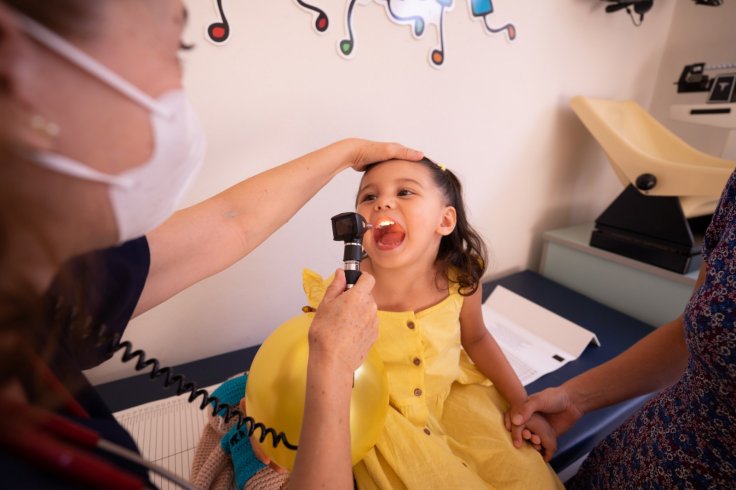Majority of the 82 children infected with measles in Ohio are under the age of five, with the initial four cases being reported in unvaccinated children in Franklin County. The first cases were linked to a child care facility.
Columbus Public Health had announced an investigation into the outbreak on November 9 after four confirmed measles cases were linked to a child care facility in Franklin County. Officials said the cases were among unvaccinated children with no travel history.
By the end of the month, more measles cases were recorded in several more sites, including a grocery store, Polaris Mall and a church. Columbus Public Health has recorded at least 82 cases as of Thursday morning, including 32 hospitalizations. It highlighted the cases being common in children 17 and younger. 94 percent of the cases infected infants, babies and children up to the age of 5.

Unvaccinated Children
The latest measles outbreak draws attention to the fact that parents are not having their children vaccinated. Officials said all of the children impacted by the outbreak are at least partially unvaccinated. This means that they only received one dose of the necessary two for the measles-mumps-rubella (MMR) vaccine.
Health officials recommend parents to get children their first dose between 12 and 15 months of age and the second between the age of four and six. They said MMR vaccine is critical in preventing the spread of measles, as 90 percent of unvaccinated people exposed to the virus will become infected.
Dr Shannon Dillion, a primary care paediatrician at Riley Children's Health in Indiana, said most of the outbreaks seen in the past decade are clustered in unvaccinated people. "It's hard to say what this one is going to do at this point because it seems like it's early on. Anytime that you have a cluster of unvaccinated people who tend to associate with each other, there's always the chance that it will spread very quickly."
Vaccine is Important
Dillion believes vaccine misinformation and lack of primary health care providers have made parents hesitant to vaccinate their children against viruses like measles. She explained that vaccines remain one of the most important things that can be done to prevent the spread of diseases. The expert highlighted that measles caused deaths of millions of children worldwide before the vaccine was available. "The measles vaccine has been available since 1963 and has really had to be changed very little since that time."
According to the US Centers for Disease Control and Prevention, measles can be serious. "Children younger than five years of age and adults older than 20 years of age are more likely to suffer from complications." Some common complications are ear infections and diarrhea, and serious complications include pneumonia and encephalitis."









